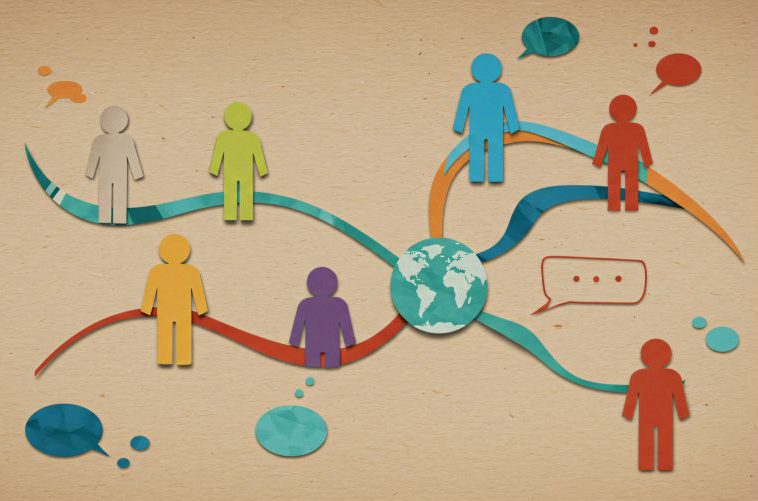
How to Stay Relaxed About the PSAT – Your First Big College Test
Posted February 13, 2018, 1:00 pm by
So you’re about to board the high-speed train that is the college admissions process. First stop: PSAT.
The PSAT is the slightly easier, decidedly lower-stakes version of the oft-dreaded SAT. Nearly 4 million 10th- and 11th-graders take the test each year, mostly to see where they stand and get a little practice for the real thing (and, for the very highest 11th-grade scorers, to compete for a National Merit Scholarship).
While the PSAT may be less daunting than some of the college entrance exams to come, it does mark your initiation into the standardized testing club. For many high school students, this milestone can cause some test anxiety: What if I do badly? Am I doomed? No college will ever want me! And worries like these can actually become self-fulfilling, as fear can hurt your performance.
“When it goes off in your brain, your ability for rational thinking actually goes down,” says Dr. Jenny Yip, a Los Angeles-based psychologist specializing in anxiety issues.
Sound familiar? Well, just keep reading for some insight into ways you can stop the stress in its tracks and head into your inaugural Big Test relaxed and ready.
-
Know what you are in for. You will be a lot calmer wielding that No. 2 pencil if you know what to expect when you open the text booklet. So learn the format of the test by working through one of the free practice tests available on the College Board website. Know that the top score for each section is a slightly wonky 760, rather than the SAT’s iconic perfect 800, so add 40 to get a better sense of how your score translates to a SAT score.
And always keep in mind that it’s highly unlikely that this one score will make any difference to your college chances. Of the more than 1.6 million 11th-graders who take the PSAT each year, only about 50,000 – or about 3 percent – qualify as National Merit semifinalists. For everyone else, the PSAT is just practice.
-
Be mindful of myths. Misinformation about standardized tests abounds. So arm yourself with the truth. No, the answer C does not show up more often than any other choice, so there is no benefit to guessing it. And no, there is no extra penalty for wrong answers (there used to be, but that is a thing of the past), so guess away if you truly have no idea about the right answer.
For that matter, know that the neither the PSAT nor the SAT is a particularly good indicator of your intelligence or how well you will do in college, according to research at Princeton University. So there’s no need to draw any discouraging conclusions about yourself if the score isn’t where you want it to be.
-
Plan ahead. Start preparing now. Not because the PSAT is a life-changing test (it’s not), but because a slow, steady study plan will get you on the right track to conquer the SAT later in the year. If you prep ahead of time, the PSAT will be a more useful experience, letting you practice skills and knowledge you’ve been working on.
To make the most of your study time, Yip suggests scheduling specific blocks of time for test prep, and writing down exactly what pages, units or chapters you will tackle during each session. The more specific your study goals, the more likely you are to execute.
-
Just chill. No matter how tempted you are, skip the last-minute studying. When you cram, you are likely to make yourself more anxious and the whole process becomes self-defeating. “Your ability for translating that information later during the test period might be distorted,” Yip said. “Cramming isn’t really helpful.” Instead, Yip suggested do something that will relax your brain: Go for a run, get a pedicure, listen to music, or do whatever works for you.
Remember: The PSAT is not going to make or break your college applications, so look at this test as a chance to get a head start on test prep and gain valuable experience in the strange world of the SAT. Investing even a little bit in the process now will pay dividends later on. It might also tell you if you need to invest in a test-prep service or test-prep tutor. “If you are prepared and you have that confidence, then the anxiety goes way down,” Yip says.
Blog Categories
- Career Advice
- College Admissions
- Colleges & Universities
- Financial Aid and Scholarships
- For Counselors
- For Parents
- For Students
- Gap Years
- Mental Health and Wellness
- Online Learning
- Performing and Visual Arts
- STEM Majors and More
- Summer Programs
- Teen Volunteering
- Trade & Vocational Schools
- Tutoring & Test Prep

Organization with listings on TeenLife? Login here
Register for Free
We’re here to help you find your best-fit teen-centered academic and enrichment opportunities.
Forgot Password
"*" indicates required fields








